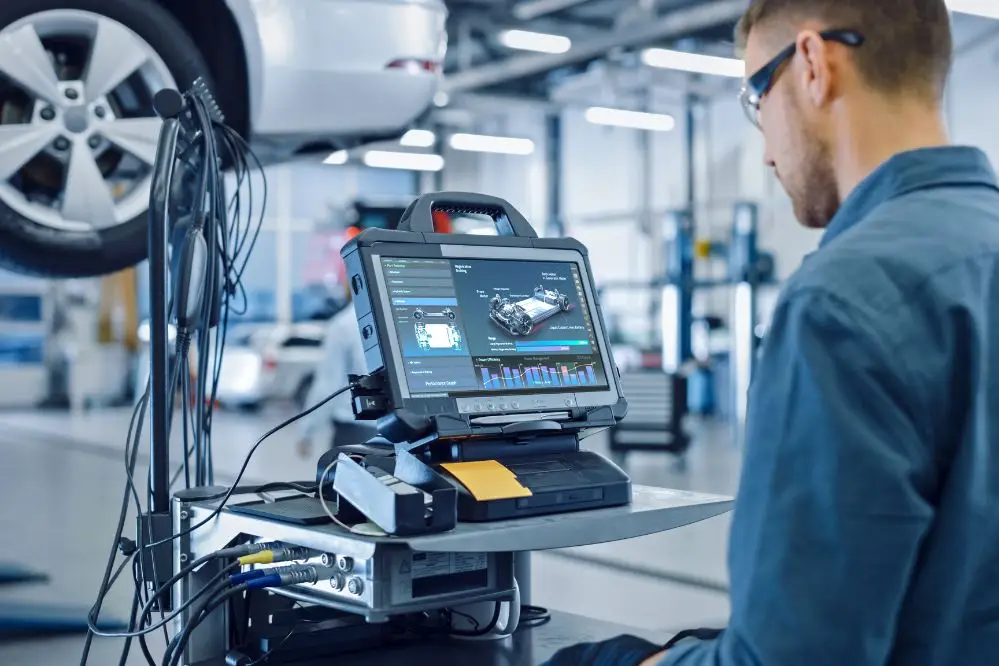By embracing a culture of learning, the industry can thrive in the net zero economy, provide exceptional service to customers, and drive sustainable and innovative practices.
The automotive service and repair industry is on the precipice of a significant transformation as we embrace the net zero economy. The industry, encompassing collision and auto glass repair, mechanical repair, towing and recovery, licensed motor dealers, and automotive dismantling and recycling, must anticipate and adapt to the impact of future technologies. It will become crucial for industry to ensure that their employees possess the necessary skills to adapt to the changing technology landscape. The introduction of new technologies, such as zero-emission vehicles (ZEVs), advanced batteries and hydrogen fuel cells, increased computerization, and automation, will all require new skill sets. Moreover, amid this evolving technology, we will need to adopt a culture of continuous learning to stay ahead of the curve.
Zero-emission vehicles are at the forefront of the automotive industry’s transition towards sustainability. As governments and consumers prioritize reducing carbon emissions, ZEVs are rapidly becoming the new norm. However, their introduction brings forth a host of new challenges for the sector. Technicians will need to acquire specialized expertise in servicing and maintaining electric drivetrains, battery systems, and advanced electronics. Automotive dismantlers will need to implement health and safety protocols, as well as adapt to new business models. The towing and recovery industry will be challenged with more complex recoveries, and it will need to find solutions to storing damaged ZEVs. This shift demands new skills to diagnose and repair complex electrical systems, as well as handle high-voltage components safely. The ability to effectively service and repair ZEVs will become paramount to meeting consumer demands and ensuring industry remains viable.
Modern vehicles are equipped with sophisticated computer systems that control vital functions, including diagnostics, battery management, and safety systems. Technicians must possess the skills to interface with these systems, analyze complex data, and perform diagnostics. Adapting to the integration of computerization and automation is essential to ensure the safety and efficiency of vehicle operation.
Recognizing the significance of these challenges, the Automotive Retailers Association (ARA) is actively working alongside industry stakeholders and government bodies to accelerate training initiatives. In a recent survey conducted by the ARA, industry professionals highlighted their commitment to investing in well-trained employees.
The ARA’s survey findings revealed that most employers valued having well-trained employees and expressed their willingness to invest time and resources in developing a skilled workforce. The amount of investment varied, with the majority willing to invest between $1,000 and $5,000. Notably, 30% were prepared to invest more than $5,000, and 20% expressed a willingness to invest over $10,000 in their employees’ training.
"Employers value having well-trained employees and express their willingness to invest time and resources in developing a skilled workforce."
Furthermore, the survey demonstrated that employees who had achieved formal recognition of their training, such as certifications, were highly valued by their employers. Such recognition not only assures employers of their employee’s competencies but also enhances the organization’s reputation in the market.
The survey also highlighted that 80% of respondents acknowledged the value of learning and considered it an investment for the future. However, the remaining 20% indicated that they would only pursue training if necessary or mandated by regulation. This finding underscores the need for widespread awareness within the industry about the importance of continuous learning and the numerous benefits it brings.
Creating a culture of learning within the automotive service and repair industry requires proactive measures from employers and industry stakeholders. The ARA survey sheds light on the various approaches adopted by businesses and organizations. Many employers demonstrated full support for their employees, covering all training expenses. They recognized the direct correlation between employee development and remaining competitive. Others welcomed the provision of information but preferred to provide employees with materials without requiring formal training. While most respondents believed in sharing information, only about 60% established any type of formal sessions to facilitate knowledge exchange.
The survey also asked respondents to specify their preferred modes of training. Online training ranked highest, followed by in-person or hybrid approaches combining online and in-person elements. Train the trainer programs and regional-based training were also popular among respondents. However, a significantly lower percentage of respondents stated a desire to learn the minimum, or they preferred to learn or acquire skills alone, emphasizing the need for industry recognition of the value of developing comprehensive and interactive training modalities.
Learning methodologies will continue to evolve as new forms of education become available. Artificial intelligence, virtual and augmented reality, and hands-on learning experiences will all play a role in transforming how people learn. Artificial intelligence-driven platforms can provide personalized learning experiences, tailored to individual skill gaps and learning preferences. Virtual and augmented reality simulations offer immersive training environments, allowing technicians to practice in virtual workshops or experience complex repair procedures firsthand. Hands-on learning will continue to be crucial, particularly for developing practical skills and fostering problem-solving abilities.
Embracing a culture of learning within the industry is essential for several reasons. First, technology is evolving at an unprecedented pace, and keeping up with these advancements is vital to ensure the industry’s competitiveness and relevance. Continuous learning enables technicians to adapt to new technologies, perform complex repairs, and provide high-quality service to customers.
Secondly, a culture of learning fosters innovation and continuous improvement within the industry. By encouraging employees to upgrade their skills and explore new ideas, organizations can drive advancements in repair techniques, service delivery, and sustainable practices. The ability to embrace and adapt to change is a hallmark of successful industries, and a culture of learning facilitates this transformative mindset.
Finally, investing in training and development has numerous benefits for businesses. Well-trained employees enhance customer satisfaction, increase efficiency, and reduce costly errors. They become brand ambassadors for the company, attracting and retaining customers. Additionally, a skilled workforce contributes to the overall growth and success of the industry, ensuring its long-term viability.
The automotive service and repair industry must proactively prepare for the net zero economy by equipping its workforce with the skills necessary to navigate the changing technology landscape. The emergence of zero emission vehicles, advanced batteries and hydrogen fuel cells, increased computerization, and automation necessitates learning new skills and a culture of continuous learning. The Automotive Retailers Association, in collaboration with industry stakeholders, government bodies, and other key players, is spearheading training initiatives to accelerate the industry’s adaptation to new technologies. By embracing a culture of learning, the industry can thrive in the net zero economy, provide exceptional service to customers, and drive sustainable and innovative practices. ■

